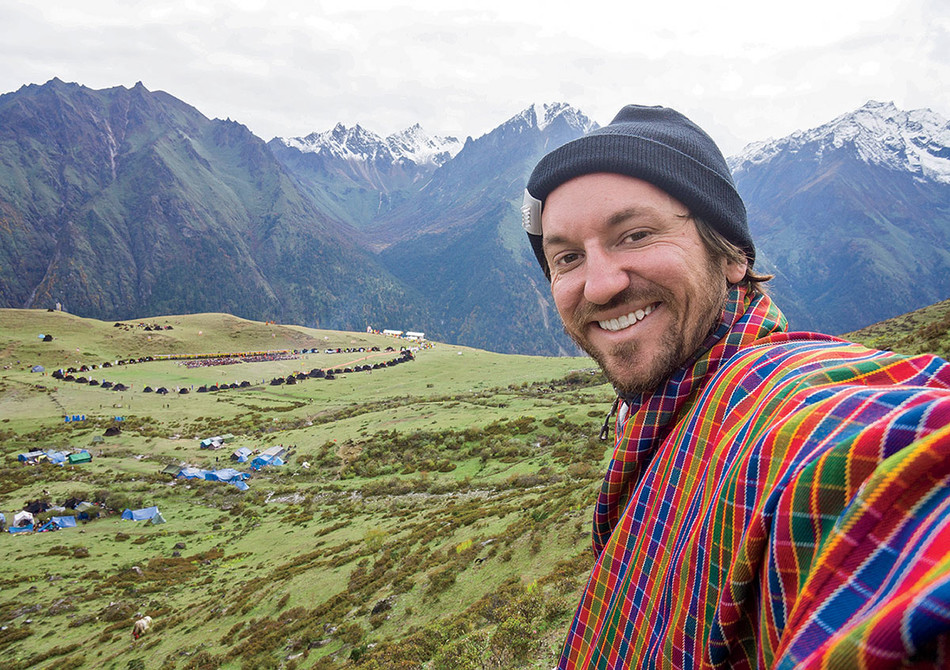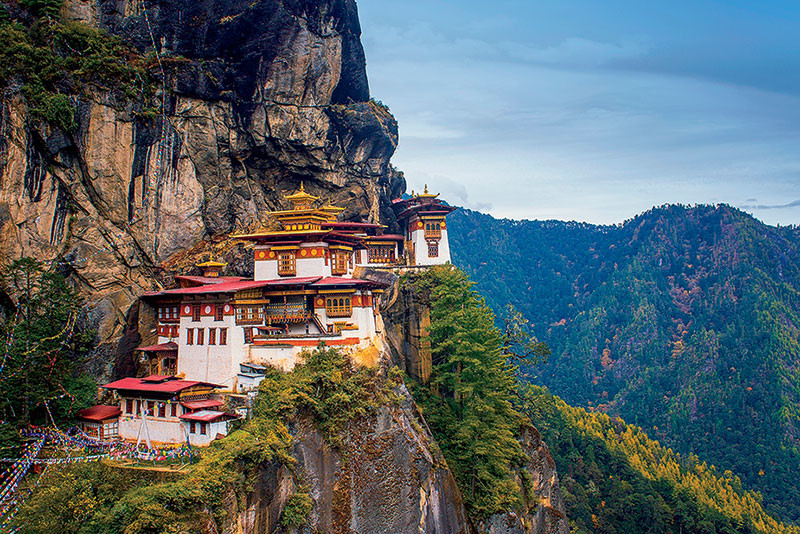When systems engineer Matthew DeSantis ’08SEAS first visited Bhutan in 2010, he expected to be there for only four weeks. The small South Asian country nestled at the foot of the eastern Himalayas had recently transitioned from an absolute monarchy into a democratic constitutional monarchy, and DeSantis was working in both the public and private sectors on technology projects such as developing management systems and building digital financial infrastructure.
Thirteen years later, DeSantis is one of Bhutan’s longest-term and most deeply engaged foreign residents. As the founder and CEO of MyBhutan, a luxury boutique travel agency, he shepherds tourists through vibrant villages and unexplored wilderness. His second company, Beyul Labs, creates technology for service industries, including Bhutan’s first platform for accepting international online payments. DeSantis is also responsible for introducing baseball to the country, and as the US State Department’s warden for Bhutan, he steps in to help American travelers and expats in need of assistance.
DeSantis, who was born and raised in Connecticut, first learned about Bhutan at age twelve while at boarding school, where Bhutanese prince Jigyel Ugyen Wangchuck, a son of then king Jigme Singye Wangchuck, was his classmate and friend. Years later, after graduating from the College of the Holy Cross and Columbia Engineering, DeSantis was employed as an IT consultant when he got the opportunity to do some technology work in Bhutan.
Upon arrival, DeSantis says he was immediately drawn to Bhutan’s vast nature reserves, rich culture, and peaceful lifestyle. Often seen as a real-life Shangri-la, Bhutan was never colonized, and until the late twentieth century, the predominantly Buddhist kingdom remained largely isolated from the outside world. It is one of the few carbon-negative countries (the constitution mandates that 60 percent of land must remain forested), and it is the only one to prioritize “Gross National Happiness” in addition to GDP. “There’s a greater emphasis here on valuing culture, environment, a stable government, and socioeconomic stability,” says DeSantis.
MyBhutan, which DeSantis founded in 2013, offers private guided journeys, including tours of monuments and monasteries, and leads adventure-seeking clients on treks and other expeditions through Bhutan’s diverse landscape. DeSantis, an avid outdoorsman, plots many of the routes with his team. “We’ve ventured to unreached parts of the Himalayas, rafted river segments that had never been rafted, and crossed through some of the least explored rainforests in the world,” he says.
The natural wonders are innumerable. “The highest unclimbed mountain in the world is in Bhutan, and because it’s considered sacred, it will remain unclimbed,” says DeSantis. “The country is also an incredibly biodiverse hot spot, in large part thanks to the Buddhist value of not harming living beings. You have everything from snow leopards in the north to elephants in the south. We have one of the last ecological corridors in the world for tigers. I won’t even begin to list the many globally threatened species in the jungle.”
MyBhutan is a social enterprise, generating revenue for several community projects. Those include working with the Central Monastic Body of Bhutan to digitally archive thousands of ancient relics and training local students to reforest historic trails and plant fruit-bearing trees for monasteries and rural communities.
DeSantis also founded and chairs the Bhutan chapter of the Explorers Club, and he recruits glaciologists, tiger conservationists, and other scientists to conduct field research in the Himalayan kingdom. (In 2019, he was part of the expedition team that won the Explorers Club Citation of Merit for discovering hundreds of new dinosaur fossil locations, as well as a number of new species, in Mongolia’s Gobi Desert using drone imaging.) In addition, he helps oversee the internationally recognized Bhutan Baseball and Softball Association as its chairman. The organization, which DeSantis started as a two-week camp in 2010 with several hundred kids, now has around ten thousand registered athletes.
Though he returns periodically to the US, DeSantis feels most at home in Bhutan, which after thirteen years is still a source of surprise and delight. “You think you know Bhutan well, and then something happens and you feel like you’re entering a new realm,” he says. “That’s why it’s known as a land of beyuls, which according to Tibetan Buddhist teachings are hidden lands that can be found only once you reach certain levels of enlightenment and clarity. There’s so much to study and absorb by exploring the landscape and spending time with the people here. Bhutan is a place with endless potential for discovery.”
This article appears in the Spring/Summer 2023 print edition of Columbia Magazine with the title "Great Explorations."




